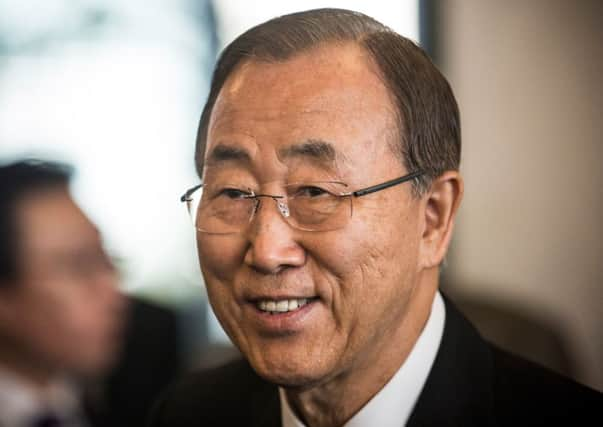Education is not just about exam grades


Across the country, exam results day brings with it a heady mix of celebrations, tears, jubilation, and relief. For teachers, it is only after results day that we can draw a line under the academic year, knowing that pupils have been supported to achieve their best.
At Kilgraston, our close community of Upper Sixth girls is now dispersing – to universities including in Cambridge, Edinburgh, St Andrews and Canada, to begin careers with sector-leading organisations such as Rolls-Royce, or to travel and see the world.
Advertisement
Hide AdAdvertisement
Hide AdAnd although there is a sadness at another year ending, there is also a profound sense of satisfaction and pride at this community of young women who are poised to go out into the world. Educating the leaders of tomorrow – the scientists, politicians, artists and entrepreneurs – is a huge responsibility and we can find much cause for optimism about the future of society in our pupils.
Our young women are confident leaders, independent thinkers, and exude an ambition to achieve that leaves me in no doubt that they are well equipped for the modern world, whatever and wherever they want to be. They are each becoming the best kind of role models – kind, humorous, hard-working and socially conscious.
We are delighted by our pupils’ achievements in national exams this year, and share each girl’s joy at seeing their hard work rewarded. But exam results are only part of the value that each young person brings to society, and we are doing our young people a disservice if we judge them solely by the contents of the envelope that arrived on their doorstep on 5 August.
Wonderful though our girls’ results are, it is seeing bright, articulate young women go out into the world with a social conscience, a determination to contribute and a strong sense of justice that brings me the greatest pleasure.
In June, Ban Ki-moon, secretary-general of the United Nations, spoke to a group of young people at the Economic and Social Youth Forum in New York. His words echoed the sense of ambition and social awareness that we nurture in our young people, and emphasised the potential of this generation of young leaders:
“There is a world of need out there, but also a world of opportunity. So, I urge you to keep doing your part. Keep showing your leadership as global citizens. Keep making a difference. The future is yours. So, raise your voices loud and clear.”
The Sacred Heart goals that form the foundation and ethos of Kilgraston help each pupil to develop – and to practise – a sense of social awareness, and acquire a firm understanding of their individual ability to act as a force for good in the world.
From the earliest years in the nursery, pupils are encouraged to become ‘agents of transformation’, who are willing and able to make a genuine impact on their society. Likewise, the skill of effective leadership is nurtured and developed, so that children are given every opportunity to learn how to get the best from themselves and others.
Advertisement
Hide AdAdvertisement
Hide AdIn this way, education is enabling young people to embody the ideals and values engraved in gold on the Scottish Mace: wisdom, justice, compassion, and integrity.
This year, our girls have been found grilling representatives from the Yes and Better Together campaigns, meeting with the Director General of the UN to campaign for an end to the recruitment of child soldiers, raising thousands of pounds for local and national charities, and volunteering in youth councils, care homes, lunch clubs and primary schools.
It is these sorts of activities that mark out a true education, in the broadest sense of the word. And these achievements are no less valuable, nor more easily earned, than those contained in an envelope on exam results day.
Our pupils never take for granted that they are educated in a safe environment that allows them to flourish and to achieve their best. Incidents like the kidnapping of Chibok schoolgirls by Boko Haram terrorists in Nigeria remind us that this education is not always available in other parts of the world today. As we remember the centenary of the beginning of the First World War this year, examples of continuing global conflict and inequality emphasise the importance of educating young people to be empathetic, thoughtful, and driven to create positive change in the world.
• Carol Ann Lund is principal at Kilgraston School, Bridge of Earn, Perthshire www.kilgraston.com
SEE ALSO